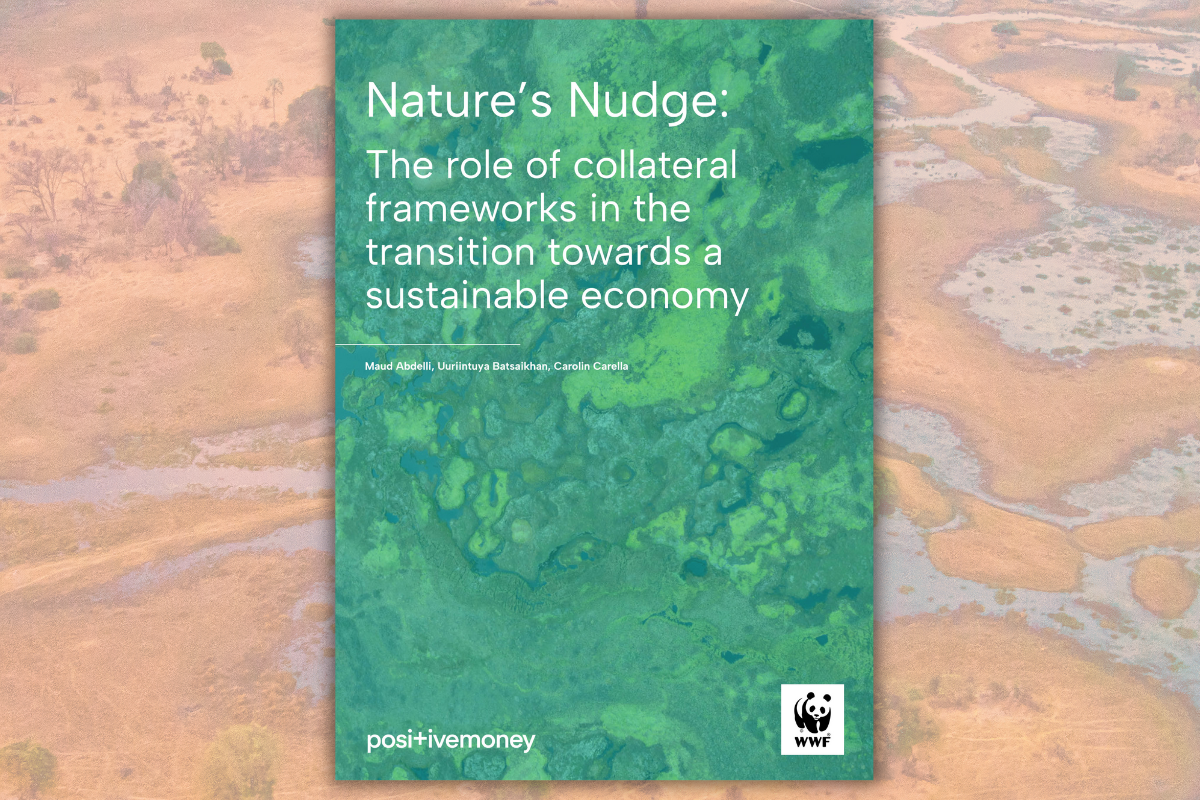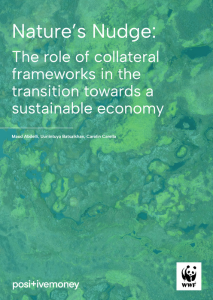Nature's Nudge: The Role of Collateral Frameworks in the Transition Towards a Sustainable Economy
Our report, Nature's Nudge: The Role of Collateral Frameworks in the Transition Towards a Sustainable Economy, developed with WWF's Greening Financial Regulation Initiative, calls on the European Central Bank to expand beyond climate risks and address the critical, often overlooked threats of biodiversity loss and ecosystem collapse.

The report, Nature's Nudge: The Role of Collateral Frameworks in the Transition Towards a Sustainable Economy, produced in collaboration with WWF's Greening Financial Regulation Initiative, calls on the European Central Bank (ECB) to expand its focus beyond climate risks to tackle a critical, but often overlooked, threat: biodiversity loss and ecosystem collapse.
The ECB, through its collateral framework, has the power to shape the behavior of market actors and is being encouraged to expand its focus beyond climate risk to include nature loss when making lending decisions to banks.
In order to effectively tackle environmental challenges, the ECB should:
Set stricter rules for the types of assets that are accepted as collateral;
Limit the amount of highly carbon-intensive or environmentally harmful assets that banks can use;
Make it less attractive for banks to finance companies pursuing environmentally damaging activities and which are not on a science-based transition path by applying higher haircuts (reductions in the value that the ECB accepts for riskier assets).
Our findings show that in France alone, the food and beverage sector is responsible for significant damage, affecting freshwater ecosystems equivalent to the size of Majorca and degrading land larger than Croatia.

Learn more! Click the link below to download the full report